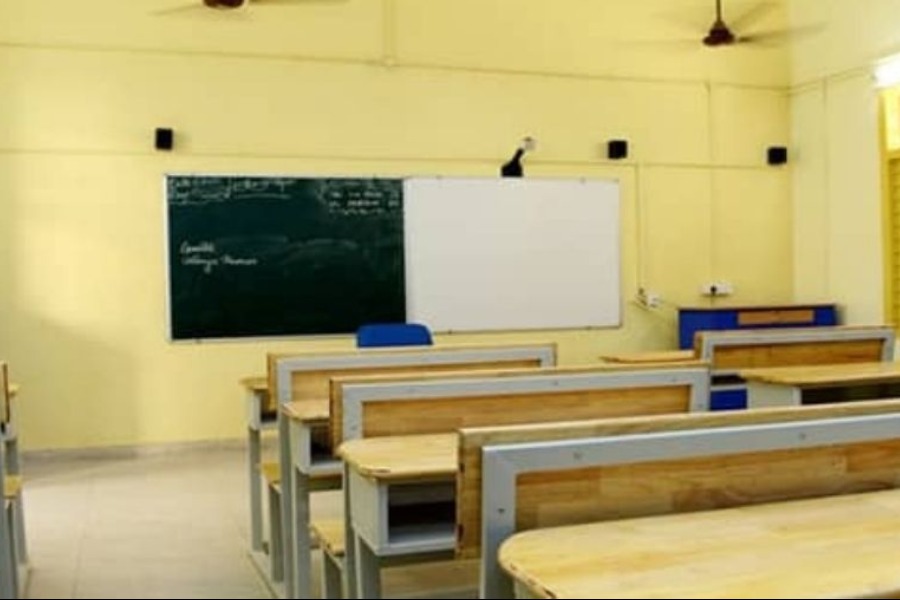Schools stress ‘original’ questions


Schools are telling teachers to ask students more original questions and encourage them to ask questions in class, the move aimed at preparing children to answer critical-thinking and application-based questions in exams.
In many schools, teachers have been told to challenge a student’s ability
to think and widen the range of questions, be it during classroom interactions or in internal assessments, to prepare the children better for the
board exams.
ICSE (Class X), ISC (Class XII) and CBSE (Class X and XII) results have just been published and the focus of schools and teachers is on the next batch of students who will appear for the board exams in 2025.
Paragraphs from newspaper reports, crosswords and case studies are some of the methods adopted by the schools to familiarise students with critical-thinking questions.
“For a direct or a critically tweaked question, the answer will be the same. The student has to have a clear understanding of the topic, which will help them interpret the question and address it,” said Mousumi Bhattacharya, a political science teacher.
“We also encourage students to bring the current context to their answers and that can happen if the question is not directly from the book.”
A sociology teacher, Aratrika Chowdhury, said a question has to be framed in a way that tests a student’s understanding and not memorising skills. “It will help them in the long run, too, because when they write essays for college admissions, they are expected to express their outlook and perspective on a topic,” said Chowdhury.
Teachers will have to “create” more original questions rather than rely on textbooks, said Souvic Jati, math teacher and academic coordinator for ICSE at The Heritage School.
“If we are able to give three new questions to our students every day at the
end of each class, it will
automatically build their confidence to tackle different kinds of questions,”
said Jati.
Classrooms have to become spaces for more interaction and less monologue, said a principal.
“We have told our teachers to encourage and train students to ask more questions in class,” said Damayanti Mukherjee, principal, Modern High School for Girls.
“This should be followed by other students validating or responding to the student who asked a question or responded. We have to break the model of a teacher being the only source of information and validation,” said Mukherjee, principal of Modern High School for Girls.
Teachers have to make their subjects more relevant and topical, said Rodney Borneo, principal, St Augustine’s Day School Shyamnagar.
“The topics covered in class have to be linked with the surroundings. For example, if they are learning about renewable energy they will have to be taken to a building that uses solar panels to study how much power is being saved and how convenient or inconvenient panels are for use. It is a lesson both in physics and geography,” said Borneo.
Specimen papers
The Council for the Indian School Certificate Examinations (CISCE) on Wednesday released specimen question papers in select subjects for the ICSE and ISC exams.
Metro reported on Wednesday that the council was preparing resource materials for critical-thinking questions and specimen papers for schools to use in their “internal assessments”.
In a circular to principals, the council said: “These papers examine the learners in higher order abilities such as Application, Analysis, Interpretation... which have also been mapped in the Specimen Question Papers.... The weightage ascribed to the questions assessing these competencies is approximately 25 per cent for the Year 2025 and will keep increasing steadily.”
The circular says each specimen paper has been supplemented with an answer key that specifies the expected response. It is recommended that the answers provided in the answer key are not memorised and be only referred to for understanding the correct approach.